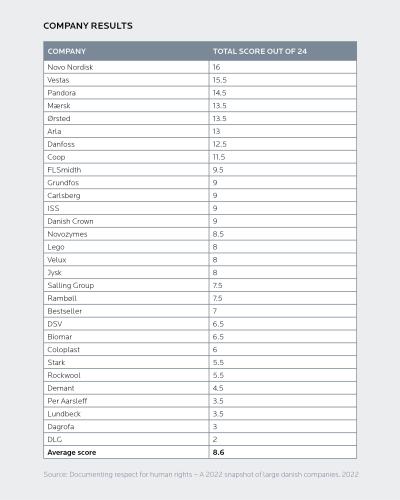Danish companies are behind in communicating their human rights efforts

Ørsted, Arla and Maersk. These are just a few of the companies closely scrutinized by the Danish Institute for Human Rights.
In a new study, the Danish Institute for Human Rights assess whether some of the largest Danish companies communicate that they live up to the expectations outlined in the UN Guiding Principles on Business and Human Rights (UNGPs).
"It is really positive that most of the companies have officially committed themselves to respecting human rights. But when it comes to letting the public know whether they live up to this responsibility, a more discouraging picture emerges," says Cathrine Bloch Veiberg, the Danish Institute for Human Rights expert on value chains, human rights and business.
The Danish companies have an average of 8,6 out of 24 points and thus have a long way to go in meeting all requirements. At the top of the list, we have the pharmaceutical giant Novo Nordisk, reaching the best placement with 16 out of 24 points. At the bottom is the agricultural company DLG with two points.

In particular, the companies struggle in informing whether they provide follow-up, compensation, and redress if their activities are associated with adverse impacts on human rights.
All the companies in the study are headquartered in Denmark but have international value chains.
"Simply put, there is no point in only respecting human rights at the head office in Ballerup, if a supplier in Bangladesh uses forced labour," says Cathrine Bloch Veiberg.
EU legal requirements on the way
The EU is bringing new legal requirements that will make it mandatory for larger companies to conduct human rights due diligence as outlined in the UNGPs.
The companies were assessed across the 12 core indicators of the Corporate Human Rights Benchmark methodology of the World Benchmarking Alliance and awarded points from zero to two on the basis of how well they met the requirements in indicator. The points in each indicator were then combined into one score.
The study is based on the information that the companies make publicly available on their websites.
Read more about the methodology on Corporate Human Rights Benchmark WBA (worldbenchmarkingalliance.org)
